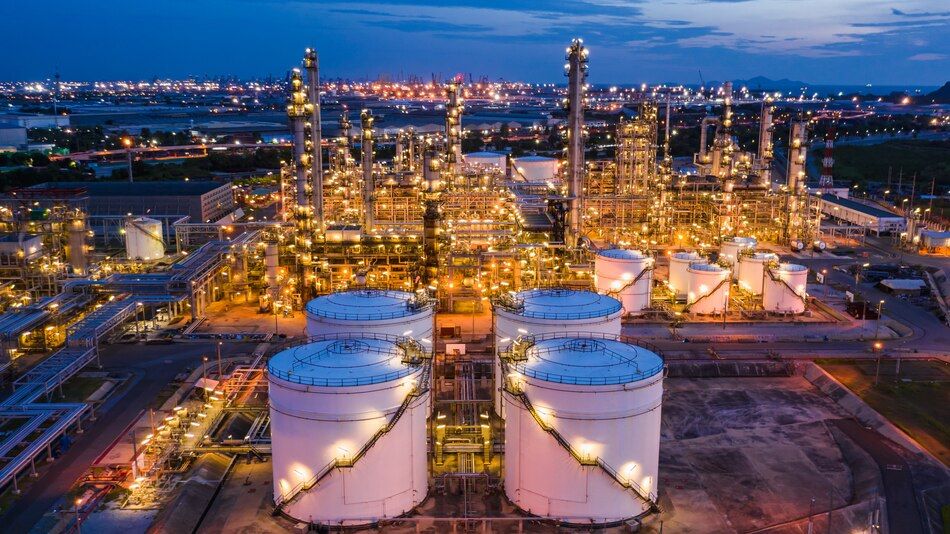
In oil and gas, refineries play a crucial role in transforming raw materials into valuable products that power our world. However, this intricate process comes with its own set of challenges, especially when it comes to regulatory compliance. This blog post delves into the complex landscape of oil and gas refinery compliance guidelines, exploring the key aspects that industries must navigate to ensure operational efficiency and environmental responsibility.
Understanding the Regulatory Landscape:
The oil and gas industry is subject to many regulations to safeguard the environment, worker safety, and public health. Compliance guidelines vary across regions, making it imperative for refineries to stay abreast of local, national, and international standards. From emissions control to waste management, a comprehensive understanding of regulatory requirements is the first step toward establishing a compliant refinery operation.
Environmental Impact Mitigation:
One of the primary concerns in oil and gas refinery compliance is minimizing the environmental footprint. Refineries must implement advanced technologies to control air emissions, manage wastewater responsibly, and reduce the impact on surrounding ecosystems. Adhering to stringent ecological standards safeguards the environment and enhances the industry’s reputation and sustainability.
Worker Safety and Health Regulations:
Ensuring the well-being of workers within refineries is paramount. Compliance guidelines mandate implementing robust safety protocols, training programs, and advanced technologies to prevent accidents and mitigate risks. From personal protective equipment (PPE) to emergency response plans, refinery operators must prioritize the health and safety of their workforce to comply with industry standards.
Technological Innovations in Compliance:
As technology evolves, refineries increasingly rely on innovative solutions to meet compliance requirements. Advanced monitoring systems, data analytics, and artificial intelligence are pivotal in managing emissions, optimizing energy consumption, and enhancing overall operational efficiency. Integrating these technologies not only aids compliance but also positions refineries for sustainable growth in a rapidly changing landscape.
Community Engagement and Social Responsibility:
Beyond regulatory mandates, oil and gas refinery compliance must engage with local communities and demonstrate social responsibility. Transparent communication, community outreach programs, and initiatives to address concerns raised by residents contribute to building positive relationships. By actively participating in community development, refineries can create a harmonious coexistence with the areas they operate in.
Challenges and Future Outlook:

While compliance is crucial, refineries face ongoing challenges meeting evolving regulatory standards. The industry is witnessing a shift towards cleaner and more sustainable practices, emphasizing the need for continuous adaptation. Staying ahead of regulatory changes, investing in research and development, and fostering a culture of environmental stewardship will be pivotal for the long-term success of oil and gas refineries.
In the intricate world of oil and gas refineries, compliance is not just a regulatory necessity but a commitment to environmental preservation, worker safety, and community well-being. By understanding and actively addressing compliance guidelines, refineries can meet legal requirements and contribute to a more sustainable and responsible energy future. The journey towards compliance is a dynamic process, demanding constant innovation and a proactive approach to ensure the resilience and longevity of the industry.
Pros of Oil and Gas Refineries:
- Energy Production: Oil and gas refinery compliance is essential for meeting the world’s energy demands. They process raw materials into various products like gasoline, diesel, and jet fuel, which power vehicles and industries.
- Job Creation: The industry provides employment opportunities for a large workforce, from engineers and technicians to administrative staff. It contributes to economic growth and stability in regions with refineries.
- Economic Contribution: Oil and gas refineries are significant contributors to national economies. They generate revenue through the production and sale of refined products and through taxes and fees paid to governments.
- Technological Advancements: Refineries drive technological innovations in process engineering, automation, and environmental control. Advances in refining technologies have led to increased efficiency and reduced environmental impact over the years.
- Petrochemical Products: Refineries produce fuel and feedstocks for the petrochemical industry. These feedstocks are essential for manufacturing various products, including plastics, synthetic rubber, and chemicals.
Cons of Oil and Gas Refineries:
- Environmental Impact: Refineries are significant contributors to air and water pollution. Emissions of greenhouse gases, particulate matter, and other pollutants can adversely affect local air quality and contribute to climate change.
- Resource Depletion: The extraction and refining of oil and gas contribute to the depletion of non-renewable resources. As these resources are finite, their deficit raises concerns about the industry’s long-term sustainability.
- Accidents and Spills: The industry is susceptible to oil spills and leaks. These incidents can devastate ecosystems, wildlife, and local communities, leading to long-lasting environmental damage.
- Dependency on Fossil Fuels: The reliance on oil and gas perpetuates the use of fossil fuels, contributing to climate change. The industry’s carbon footprint and its role in global warming are significant concerns in transitioning to cleaner and more sustainable energy sources.
- Public Health Risks: Emissions from refineries can potentially jeopardize the health of communities nearby. Respiratory, cardiovascular, and other health issues may be associated with exposure to refinery emissions.
Frequently Asked Questions (FAQs) about Oil and Gas Refineries:
What is an oil-and-gas refinery?
An oil and gas refinery is an industrial facility that processes crude oil and natural gas to produce various valuable products such as gasoline, diesel, jet fuel, and petrochemical feedstocks.
How do refineries work?
Refineries work through complex processes, including distillation, cracking, and treatment, to separate, convert, and refine crude oil into different products based on their molecular properties and intended use.
What is the environmental impact of refineries?
Refineries can have significant environmental impacts, contributing to air and water pollution. Emissions include greenhouse gases, particulate matter, and other pollutants, leading to concerns about climate change and local environmental quality.
What safety measures are in place at refineries?
Refineries implement rigorous safety measures to protect workers and prevent accidents. These measures include training programs, personal protective equipment (PPE), emergency response plans, and ongoing monitoring of operational processes.
How do refineries contribute to the economy?
Refineries contribute to the economy by generating revenue by producing and selling refined products. They also create job opportunities, stimulate related industries, and pay taxes and fees to governments.
Are there alternatives to fossil-fuel-based refineries?
There are ongoing efforts to explore and develop alternatives to traditional fossil fuel-based refineries. These include biofuel refineries, renewable energy sources, and research into cleaner technologies to reduce the industry’s environmental footprint.
What is the role of technology in refineries?
Technology is crucial for process optimization, environmental control, and safety in refineries. Advanced monitoring systems, automation, and artificial intelligence are increasingly used to enhance efficiency and reduce the ecological impact of refinery operations.
How do refineries address environmental concerns?
Refineries address environmental concerns by implementing advanced technologies for emissions control, waste management, and energy efficiency. Many refineries also engage in sustainable practices and adhere to strict environmental regulations.
What challenges do refineries face in today’s energy landscape?
Refineries face challenges such as adapting to changing environmental regulations, transitioning to cleaner energy sources, and meeting the demand for sustainable practices. Balancing economic viability with ecological responsibility is a crucial challenge.
How can communities engage with local refineries?
Communities can engage with local refineries through open communication channels, participating in public forums, and collaborating on community development initiatives. Building positive relationships fosters transparency and mutual understanding between refineries and their communities.



